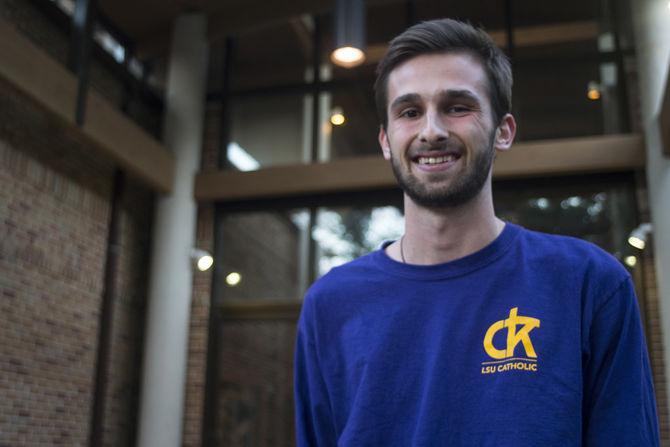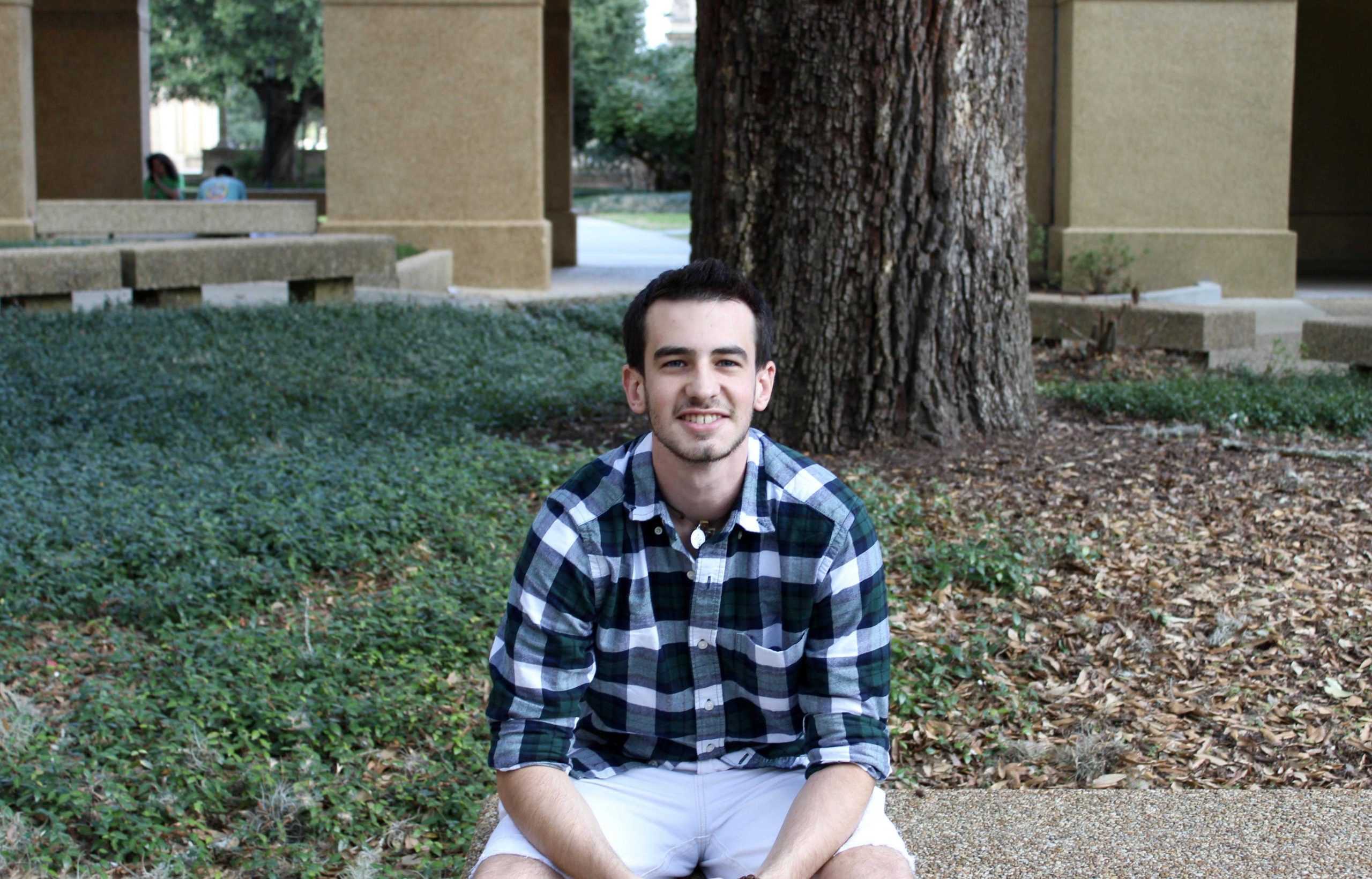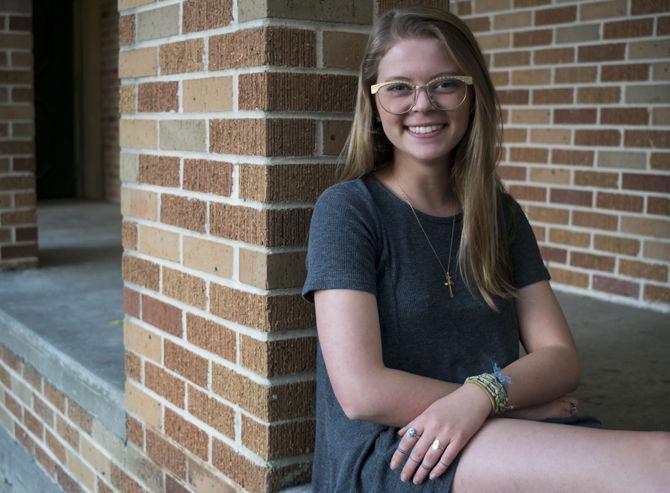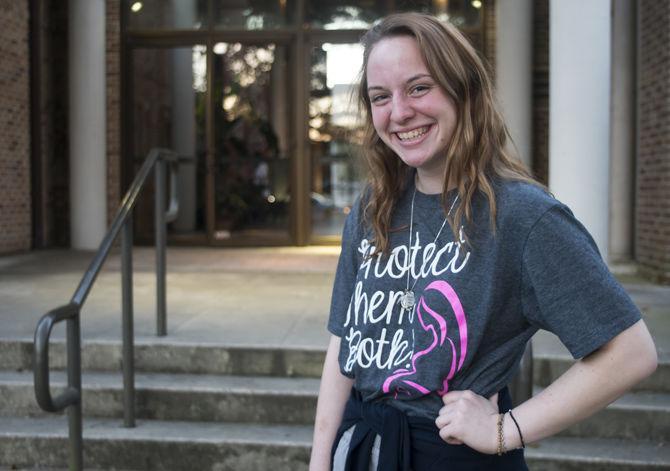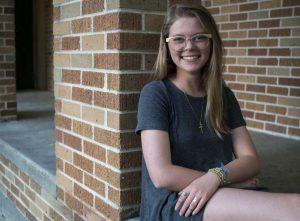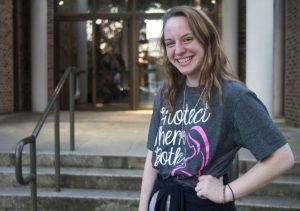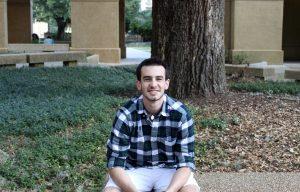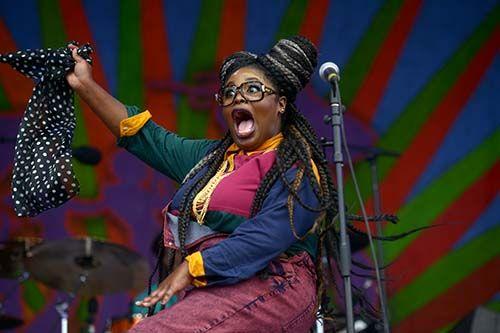On Friday, Jan. 27, for the 44th year in a row, hundreds of thousands of people flocked to the United States Capitol in Washington D.C. to stand up for the rights of the unborn.
The first March for Life was held in 1974 in response to the Supreme Court ruling of Roe v. Wade, which legalized abortion in the United States. The march has become an annual event, one that aims to continue until the day Roe v. Wade is overturned. The march has grown significantly over the decades and according to an article from Fox News, in 2013, the 40th anniversary of Roe v. Wade, the mass of protesters had reached a record-breaking number of 650,000 people.
Various groups of University students made their way to D.C. last week to add their voices to a cause important to them. Some were affiliated with religious organizations, some attended with advocacy groups such as LSU’s Students for Life organization and some made the trip on their own.
Mechanical engineering senior Evan Richard travelled with other students who acted as mentors to a group of students from St. Michael’s High School in Baton Rouge, Louisiana. He emphasizes the significance of the march in light of the current political climate and states the importance in keeping life a priority while the marchers fight for justice for all.
“You see all these different advocacy groups fighting for different kinds of human rights,” Richard says. “You see groups fighting for women’s rights, for LGBTQ rights, for minorities — and while each of those have their own respective merits, if we can’t fight for and acknowledge the right to life, then what else are we fighting for? I feel like everything after that suddenly then has no meaning.”
Recent University alumna Kaitlyn Johnson accompanied Richard to Washington, D.C. and says that this march specifically brought her a new outlook on human rights.
“It’s about bringing humanity back into all people,” she said. “We do this to bring humanity back to these babies in the womb, but also to bring humanity back to the people who disagree with us. To the people who have suffered from abortion, who continue to go to that. It’s not just an anti-abortion issue, it is a pro-life issue.”
Some students who were unable to attend the march in Washington, D.C. represented the cause in Baton Rouge at the Louisiana March for Life on Jan.21. A group of students affiliated with Christ the King Catholic Church, located on University’s campus, gathered together in prayer as they marched from Louisiana’s Old State Capitol to the present Capitol building. Chemical engineering freshman Emily Kennedy says the CTK group prayed the rosary as they walked through downtown Baton Rouge, with other religious groups praying a few steps behind them.
“If we can’t protect life at its most innocent state, we can’t protect it at any state,” Petroleum engineering sophomore Drew Knight says who participated in the Louisiana Life March.
Accompanying Knight was environmental science freshman Alisse Guerra, who emphasized the tragedy of ending a life too soon, saying “the world has lost something.”
A few students were able to attend both marches and were excited about the way the focus was placed not only on the unborn fetus, but on the mother as well.
“The theme of the [Baton Rouge] march was, ‘Protect them both,’” Kennedy says.
Mathematics senior Joshua Ramirez made the trip to Washington, D.C. with a friend.
“What I liked about this march is that people focused on being there for women after they have chosen life and after they’ve had babies,” he says. “A lot of times in the pro-life movement you have people who are pro-birth. They just want women to have the baby and are nowhere to be found once they do. So there was a lot of talk about actually being able to be there to plug women into resources after they have their children.”
For Ramirez, the trip was a personal one. He has spent the past few years getting involved in the University’s Students for Life organization, which finds ways to help prevent abortions and to assist pregnant women, as well as providing resources for mothers of unplanned pregnancy.
“Anyone who goes to have an abortion, they’re there because they feel like they don’t have another option,” he says.
This cause is very dear to Ramirez’s heart, he says, because it has helped him to understand his own mother, who had abortions before he was born. Through his interactions with women who come to this kind of choice in their lives, he has found a way to bring healing and understanding in his relationship with her.
At the march, Ramirez was overwhelmed by the huge amount of people who showed up to fight for people like his siblings and his mother.
He feels as if his siblings are always beside him as he works to save children like them. At a retreat for post-abortive women, which he attended with his mother, they had the opportunity to name his oldest brother — Samuel.
“I marched for Samuel,” he says. “He is what motivates me. I marched for Samuel and all of my siblings. And for women who think they don’t have a choice and that they’re an unfit mother. Because they’re not.”



